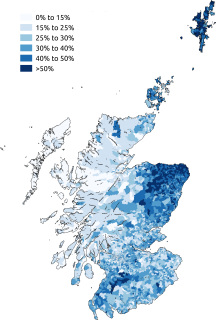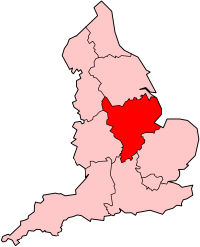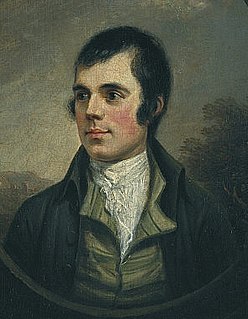Related Research Articles

The Slavic languages, also known as the Slavonic languages, are Indo-European languages spoken primarily by the Slavic peoples and their descendants. They are thought to descend from a proto-language called Proto-Slavic, spoken during the Early Middle Ages, which in turn is thought to have descended from the earlier Proto-Balto-Slavic language, linking the Slavic languages to the Baltic languages in a Balto-Slavic group within the Indo-European family.

Edward James "Ted" Hughes was an English poet, translator, and children's writer. Critics frequently rank him as one of the best poets of his generation and one of the twentieth century's greatest writers. He was appointed Poet Laureate in 1984 and held the office until his death. In 2008 The Times ranked Hughes fourth on its list of "The 50 greatest British writers since 1945".

Scots is an Anglic language variety in the West Germanic language family, spoken in Scotland and parts of Ulster in the north of Ireland. Most commonly spoken in the Scottish Lowlands, Northern Isles and northern Ulster, it is sometimes called Lowland Scots or Broad Scots to distinguish it from Scottish Gaelic, the Goidelic Celtic language that was historically restricted to most of the Scottish Highlands, the Hebrides and Galloway after the 16th century. Modern Scots is a sister language of Modern English, as the two diverged independently from the same source: Early Middle English (1150–1300).

In Gaelic myth, the Cailleach is a divine hag and ancestor, associated with the creation of the landscape and with the weather, especially storms and winter. The word literally means 'old woman, hag', and is found with this meaning in modern Irish and Scottish Gaelic, and has been applied to numerous mythological and folkloric figures in Ireland, Scotland, and the Isle of Man. In modern Irish folklore studies she is also known as The Hag of Beara, while in Scotland she is also known as Beira, Queen of Winter.

Thomas Campbell was a Scottish poet. He was a founder and the first President of the Clarence Club and a co-founder of the Literary Association of the Friends of Poland; he was also one of the initiators of a plan to found what became University College London. In 1799 he wrote "The Pleasures of Hope", a traditional 18th-century didactic poem in heroic couplets. He also produced several patriotic war songs—"Ye Mariners of England", "The Soldier's Dream", "Hohenlinden" and, in 1801, "The Battle of the Baltic", but was no less at home in delicate lyrics such as "At Love's Beginning".

Scottish literature is literature written in Scotland or by Scottish writers. It includes works in English, Scottish Gaelic, Scots, Brythonic, French, Latin, Norn or other languages written within the modern boundaries of Scotland.
Scottish English is the set of varieties of the English language spoken in Scotland. The transregional, standardised variety is called Scottish Standard English or Standard Scottish English (SSE). Scottish Standard English may be defined as "the characteristic speech of the professional class [in Scotland] and the accepted norm in schools". IETF language tag for "Scottish Standard English" is en-scotland.

Irish literature comprises writings in the Irish, Latin, English and Scots languages on the island of Ireland. The earliest recorded Irish writing dates from the seventh century and was produced by monks writing in both Latin and Early Irish. In addition to scriptural writing, the monks of Ireland recorded both poetry and mythological tales. There is a large surviving body of Irish mythological writing, including tales such as The Táin and Mad King Sweeny.

Bishop Richard Corbet was an English clergyman who rose to be a bishop in the Church of England. He is also remembered as a humorist and as a poet, although his work was not published until after his death.
Tom Leonard was a Scottish poet, writer and critic. He was best known for his poems written in Glaswegian dialect, particularly his Six Glasgow Poems and The Six O'Clock News. His work frequently dealt with the relationship between language, class and culture.
This glossary of literary terms is a list of definitions of terms and concepts used in the discussion, classification, analysis, and criticism of all types of literature, such as poetry, novels, and picture books, as well as of grammar, syntax, and language techniques. For a more complete glossary of terms relating to poetry in particular, see Glossary of poetry terms.

East Midlands English is a dialect, including local and social variations spoken in most parts of East Midlands England. It generally includes areas east of Watling Street, north of an isogloss separating it from variants of Southern English and East Anglian English, and south of another separating it from Northern English dialects. This includes the counties of Derbyshire, Leicestershire, Lincolnshire, Nottinghamshire, Rutland and Northamptonshire. Dialects of northern Derbyshire, Nottinghamshire and Lincolnshire usually share similarities with Northern English dialects. Relative to other English dialects, there have been relatively few studies of East Midlands English.
William Corbett was an American poet, essayist, editor, educator, and publisher.
William Fowler was a Scottish poet or makar, writer, courtier, and translator.

The Lancashire dialect or refers to the Northern English vernacular speech of the English county of Lancashire. The region is notable for its tradition of poetry written in the dialect.

The Association for Scottish Literary Studies (ASLS) is a Scottish educational charity, founded in 1970 to promote and support the teaching, study and writing of Scottish literature. Its founding members included the Scottish literary scholar Matthew McDiarmid (1914–1996). Originally based at the University of Aberdeen, it moved to its current home within the University of Glasgow in 1996. In November 2015, ASLS was allocated £40,000 by the Scottish Government to support its work providing teacher training and classroom resources for schools.
Tom Hubbard was the first librarian of the Scottish Poetry Library and is the author, editor or co-editor of over thirty academic and literary works.

The Fighting Renegade is a 1939 American western directed by Sam Newfield and produced by Sam Katzman for Katzman's Victory Pictures.

Scots-language literature is literature, including poetry, prose and drama, written in the Scots language in its many forms and derivatives. Middle Scots became the dominant language of Scotland in the late Middle Ages. The first surviving major text in Scots literature is John Barbour's Brus (1375). Some ballads may date back to the thirteenth century, but were not recorded until the eighteenth century. In the early fifteenth century Scots historical works included Andrew of Wyntoun's verse Orygynale Cronykil of Scotland and Blind Harry's The Wallace. Much Middle Scots literature was produced by makars, poets with links to the royal court, which included James I, who wrote the extended poem The Kingis Quair. Writers such as William Dunbar, Robert Henryson, Walter Kennedy and Gavin Douglas have been seen as creating a golden age in Scottish poetry. In the late fifteenth century, Scots prose also began to develop as a genre. The first complete surviving work is John Ireland's The Meroure of Wyssdome (1490). There were also prose translations of French books of chivalry that survive from the 1450s. The landmark work in the reign of James IV was Gavin Douglas's version of Virgil's Aeneid.
The Misses Corbett were sisters Walterina Cunningham and Grace Corbett. They were Scottish authors who wrote a number of books, poems and songs in the early nineteenth century, most notably a series of anthologies called The Odd Volume (1826–1827). While their books were published anonymously, generally as "by the authors of The Odd Volume", they were traditionally ascribed to "The Misses Corbett", "Misses M and — Corbett" or "Marion and Margaret Corbett".
References
- ↑ Corbett, John (2010) [2000]. "Literary Language and Scottish Identity". Association for Scottish Literary Studies. Retrieved 26 September 2012.